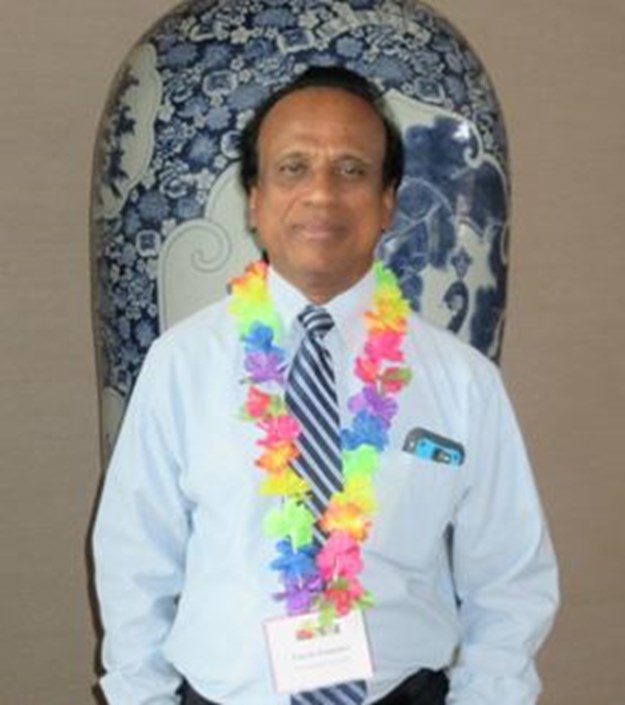Panicker Delivers Lecture in Hawaii
Dr. Girish K.S. Panicker, director, of the Alcorn State University Center for Conservation Research, was invited by the American Society for Horticultural Science to deliver a lecture during its 114th annual international conference.
The conference was held September 19-22 at the Hilton Waikoloa Village in Waikoloa, Hawaii. Panicker presented on the topic, “Fruit Quality, Adaptability, Yield, and Biomass Production of Organically Grown Indigenous and Exotic Melons on a Heavy Soil.”
Panicker’s presentation was an outgrowth of a $498,561 grant received from the United States Department of Agriculture for his work, “Mining the Melon Gene Pool to Breed Novel Morphotypes for Dissemination into Small Farms through a Participatory Selection Approach.”
This multidisciplinary and multi-institutional research on 103 varieties of melons worldwide was successfully carried out in collaboration with scientists from Alcorn State University, West Virginia State University, and Cornell University. Panicker served as principal investigator.
He reflected fondly on his experience in Hawaii. He cites his favorite part of the trip as the opportunity to apply his wide knowledge-base to a new landscape.
“Although I’ve traveled to more than 20 countries, this was my first time in Hawaii and I was struck by the beauty of it,” he said. “They have a large variety of ornamental plants, as well as tropical fruit, both cultivated and wild, which interested me. The landscape and the rainforest reminded me of my home in southern India. The Island has all kinds of tropical crops and a land-grant university, the University of Hawaii.”
Panicker also highlighted the importance of his research at the Center for Conservation Research. He stated, “the ultimate aim of all research programs of the Conservation Research Center is to keep the soil and the humans healthy.” In line with this aim, the Center has helped to bring Mississippi from its notorious status as the unhealthiest in the United States, to number two on that list.
“Fruits and nuts are the two major food items in the world that humans can consume without cooking,” he said. “They provide antioxidants, minerals, vitamins, and fiber which are required for a healthy diet. These items are expensive in the market and average people can’t afford them. Our research programs have helped to train hundreds of people, including our students, on organic production and to educate them about their beneficial effects on human health.”
After an analysis of the quality and adaptability of the melons, seeds of best varieties are distributed free to the public. More than 1,500 people have taken advantage of this service.
For more information, contact Panicker at 601.877.6598, 601.877.3372, or [email protected]





